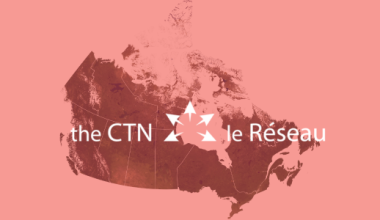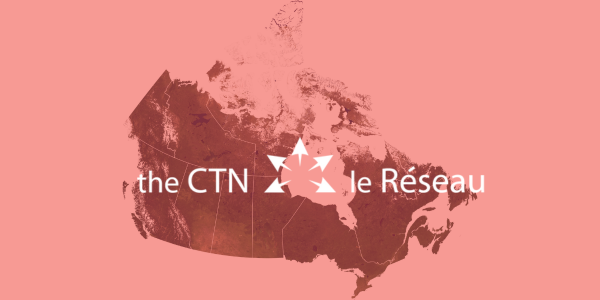The first CTN study that Rosie worked on was the CTN164 STI study – that study belonged to her.
Rosemarie Clarke had just spent a decade as a nurse with the Intensive Care Unit at Toronto General Hospital (TGH) before seeking a change of scenery and taking the opportunity to become a research coordinator in the Immunodeficiency Clinic at TGH. What was initially a 3-month plan turned into a remarkable career spanning 25 years. Rosie worked closely with several TGH-based CTN Investigators, including Dr. Sharon Walmsley, the Head of the Immunodeficiency Clinic.

Rosemarie Clarke
It was after attending a Canadian Association of HIV Research conference (CAHR), that Rosie was inspired to do more for the HIV community, particularly in supporting fellow research coordinators. Often invited as a courtesy, Rosie knew there was so much more they could add, plus this was a perfect opportunity to support each other’s work. She also felt convicted to ask the tough questions that people wanted to ask but were afraid to. For example, she challenged protocols that called for the collection of “just in case” samples, arguing that not only was it a waste of resources, but it was also not ethical. As a result of her efforts, investigators stopped including “just-in-case” sample collection in their protocols.
Another concern of Rosie’s was that research participants, who often attended and participated in conferences focused on HIV, were not aware of the results of the studies they participated in. Rosie pushed for sharing study findings with research participants as well. Experiences from her nursing background provided her with the insight to effectively support patients and research participants. Rosie often worked with CTN’s Community Advisory Committee to advocate for the rights and needs of people living with HIV.
We sat down to chat with Rosie about her experiences as a research coordinator.
Can you recall a day when you left your office and thought to yourself, “That was a great day”?
“There have been numerous, but they always centered around a patient. It always involved someone expressing, ‘You made a difference.’ One memorable occasion was when a young lady came in to see me. At the end of our interaction she started to cry and said, ‘You greeted me without gloves.’ These experiences showed me the impact of small gestures. They can make a huge impression and have made me more mindful of the little things I do. What you don’t say says a lot more than what you do say. And this goes for more than just the patients I would interact with. Other coordinators have thanked me for voicing what they couldn’t, which gave them the courage to speak up.”
Was there anything that really surprised you when you switched from ICU nursing to research?

“I had a decades’ worth of clinical expertise from working in critical care so when I moved into research, I was starting from scratch. This initially didn’t sit well with me, not being an expert. I was quite surprised by how much I didn’t know, but you don’t really know how much you don’t know about something until you’re working in a new setting. I almost went right back to the ICU because I couldn’t handle not being good enough, but I continued learning about HIV and understanding the stigma and figuring out where I could be relevant and make a difference. I believe that ‘Attitude above your aptitude determines your altitude’. I’m glad I stayed!”
What has changed during your time as a research coordinator?
“Quite a lot has changed, but there is one aspect that was changing for the better and is now regressing. Back when case report forms were on paper, research coordinators were responsible for completing them, but we weren’t involved in their design. However, over time, there was more inclusion in the design process.

We also used to have more opportunities to connect and collaborate with other coordinators at the CTN and CAHR meetings, but that isn’t happening now due to a lack of funding. Meeting other coordinators was so valuable because a lot of CTN sites only have one research coordinator.”
What message do you have for funders regarding the future of HIV research?
“There is a lot of funding focused on finding a cure, but I would love for a portion of that to be dedicated to effective support and infrastructure. You can’t fund cure research without adequate and proper operations in place to effectively and ethically conduct it. Great research needs to be supported because if it’s not done properly all the wins will be lost. A trial can be shut down, participants’ time wasted, and data collection done in vain if there is not adequate resources on the back end. There is still so much focus on the lead investigator(s) of a study that oftentimes their support team is overlooked. Research coordinators, statisticians, and trainees all make crucial contributions to the work and are among those who need to be supported so that the team can work together and get the best results. I always hope when there is funding, a chunk has been dedicated to support the resources required. This also includes the cost for technology, which sure, has a huge upfront cost, but has long-term benefits which could far outweigh that initial cost and reduce costs within health care systems overall.”
What advice would you offer someone just entering this field?
“Give yourself time! I wanted to excel and settle in within 4 months, but I don’t recommend it. Learning includes making mistakes so take 6 months to settle in and always allow yourself to keep learning. Also, remember that you are working with people. Sure, there are numbers, forms, data, and all the other paperwork required to conduct research well, but I am working with people. It’s all about relationships. All the publications have great value, but at the end of the day, people mostly remember how they were treated. That is the impact you can have, even if only interacting with them for a brief moment. Foster relationships because in the end you are working to help people live better lives.”






